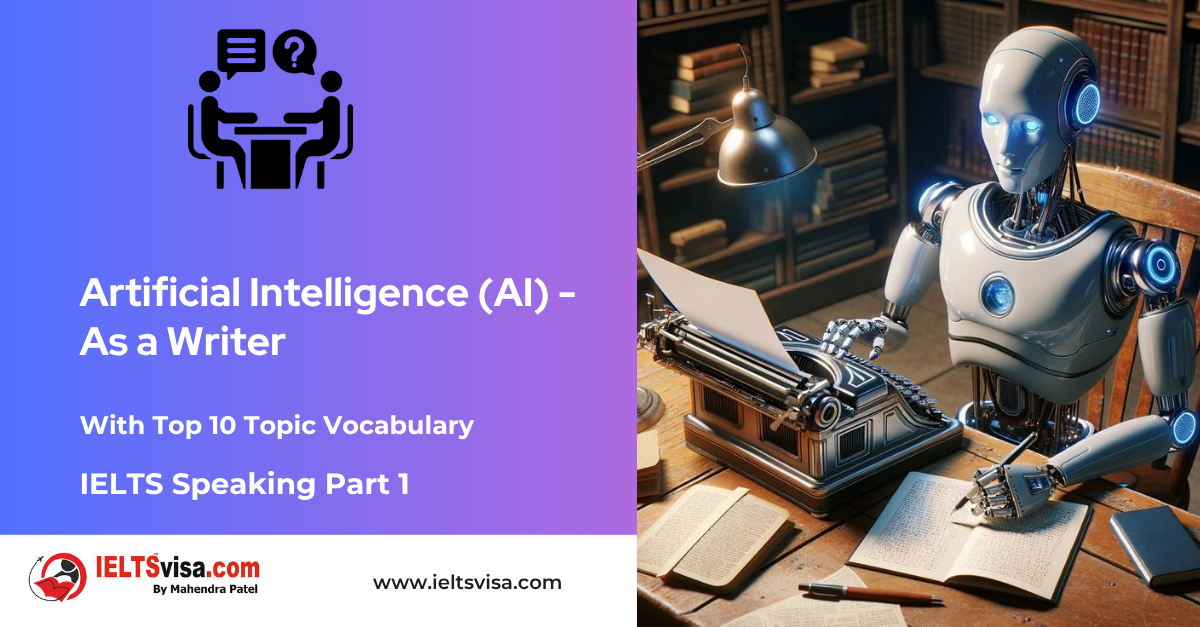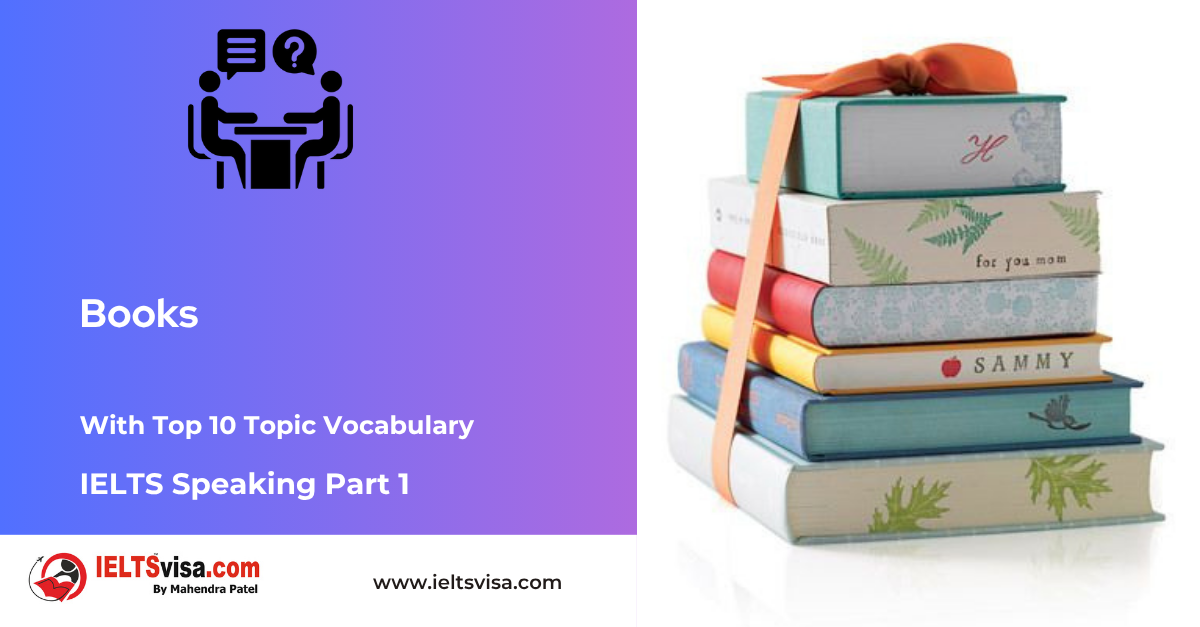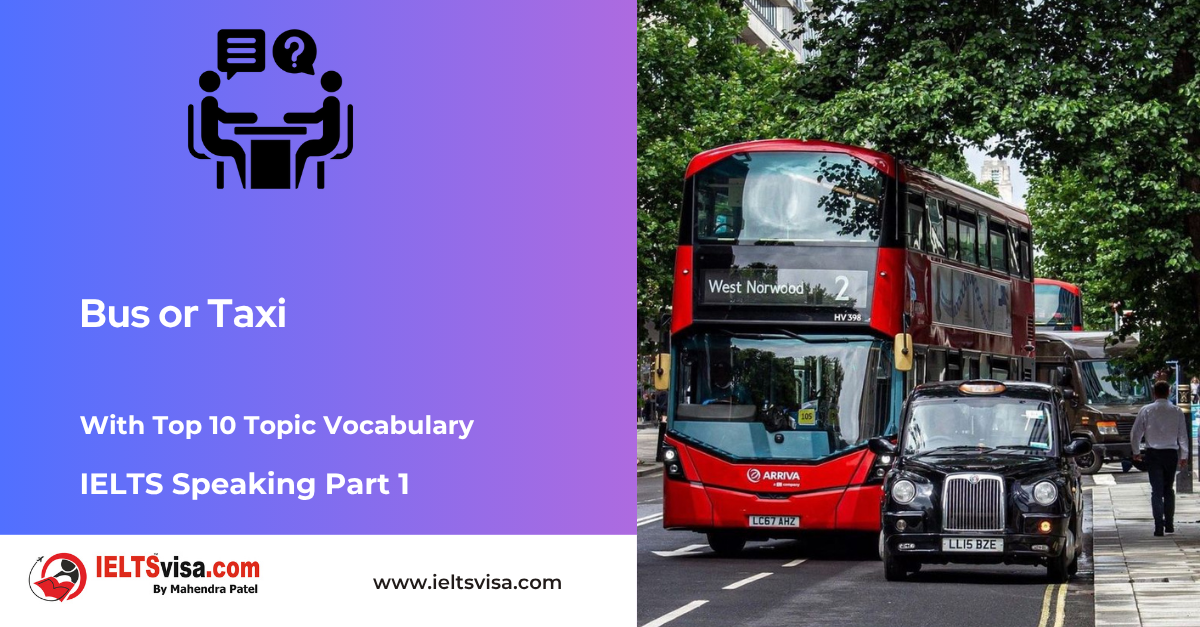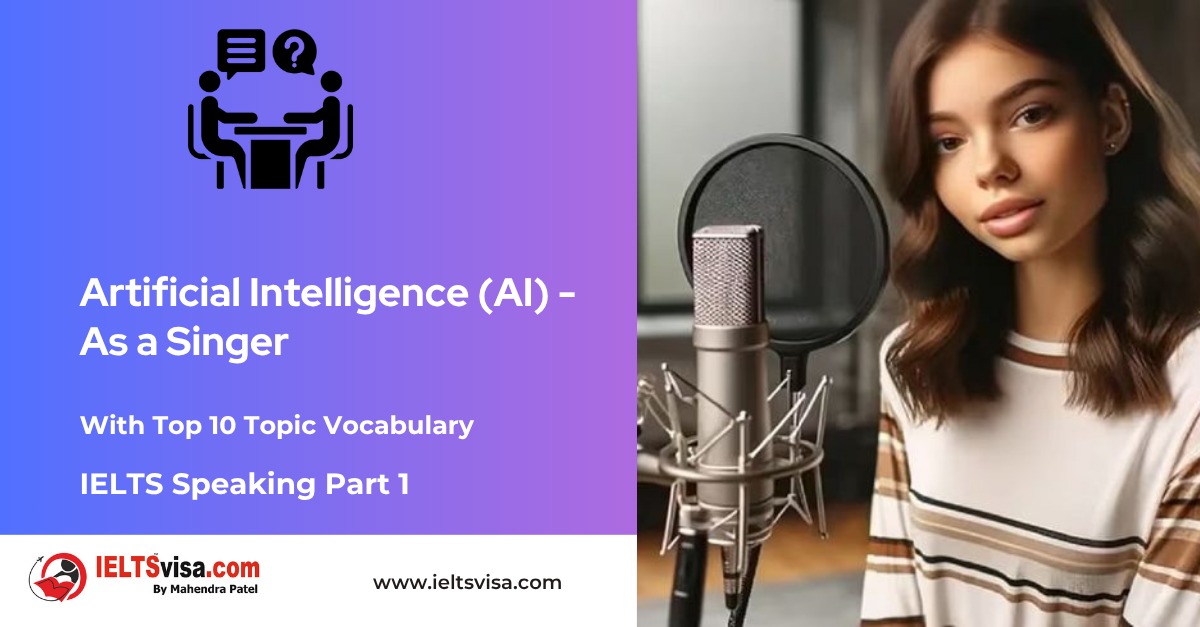IELTS Speaking Part 1 – Artificial Intelligence (AI) As a Writer
IELTS Speaking Practice
IELTS Speaking Part 1 – Artificial Intelligence (AI) As a Writer
Examiner: How has AI impacted your work as a writer?
Candidate: AI has dramatically influenced my work by providing tools that assist in generating ideas, editing, and even helping with writer’s block. It streamlines the writing process, making it more efficient.
Examiner: Can you give an example of AI tools you use in your writing process?
Candidate: I use AI-powered writing assistants like Grammarly for grammar and style suggestions and tools like Jasper AI for generating content ideas and drafting initial text.
Examiner: Do you think AI can improve the quality of written content?
Candidate: Yes, AI can enhance the quality by providing real-time feedback on grammar, style, and tone. It can also help in researching and fact-checking, ensuring accuracy and relevance.
Examiner: How do you feel about AI taking over some aspects of writing?
Candidate: While AI can assist with repetitive and technical tasks, the creativity and emotional depth of human writers are irreplaceable. AI is a tool that enhances, rather than replaces, human creativity.
Examiner: Are there any genres or types of writing where AI is particularly useful?
Candidate: AI is particularly useful in content writing, journalism, and technical writing, where it can help generate factual, structured, and SEO-optimized content efficiently.
Examiner: Do you think AI can help in overcoming writer’s block?
Candidate: Absolutely. AI can generate prompts, suggest ideas, and even create initial drafts, which can help spark creativity and overcome writer’s block.
Examiner: How do you stay updated on the latest advancements in AI for writing?
Candidate: I stay updated by reading industry blogs, participating in webinars, and being part of professional networks focusing on technology in writing and publishing.
Examiner: What are some challenges you face when integrating AI into your writing process?
Candidate: Some challenges include ensuring the AI-generated content aligns with my voice and style, dealing with the potential lack of originality, and addressing ethical concerns regarding authorship.
Examiner: Do you think AI will replace writers in the future?
Candidate: I don’t believe AI will replace writers. It can handle certain aspects of writing, but the human touch, creativity, and emotional connection are elements that AI cannot fully replicate.
Examiner: How do readers generally react to AI-generated content?
Candidate: Reactions vary. Some readers may not notice the difference if the content is well-crafted, while others may feel that AI-generated content lacks the depth and authenticity of human-written pieces.
Examiner: What role does AI play in editing and proofreading?
Candidate: AI plays a significant role by providing tools that quickly identify and correct grammar, punctuation, and stylistic errors. It helps ensure clarity, coherence, and overall quality.
Examiner: Can you describe a situation where AI significantly impacted your writing project?
Candidate: AI has helped me meet tight deadlines by generating initial drafts quickly, allowing me to focus on refining and adding a personal touch to the content, thereby saving time and enhancing productivity.
Examiner: How do you ensure the ethical use of AI in your writing?
Candidate: I ensure ethical use by transparently acknowledging any AI assistance, maintaining the originality of ideas, and using AI as a supportive tool rather than a primary creator.
Examiner: What is your opinion on the potential of AI in personalized content creation?
Candidate: AI has great potential in personalized content creation by analyzing reader preferences and behaviours to tailor content that resonates more effectively with specific audiences.
Examiner: How do you balance the use of AI with traditional writing practices?
Candidate: I balance AI use by employing it for initial drafts, research, and technical tasks while relying on traditional writing practices for creativity, storytelling, and emotional depth to maintain authenticity and originality in my work.
Top 10 Topic Vocabulary for“Artificial
Intelligence (AI) As a Writer”
|
Vocabulary |
Type |
Meaning |
Synonyms |
Antonyms |
Word Family |
Example Sentences |
|
Streamline |
Verb |
Make more efficient or simpler |
simplify, rationalize, optimize |
complicate, make more complex, make more difficult |
streamlining |
AI can streamline the writing process. |
|
Content generation |
Noun |
The creation of new content, such as articles, blog posts, or social media posts |
content creation, content production, content development |
content |
AI can assist in content generation. |
|
|
Grammar |
Noun |
The rules of a language for combining words |
syntax, usage, style |
grammatical |
AI tools can help with grammar and style checks. |
|
|
Emotional depth |
Noun |
The intensity and complexity of emotions expressed |
emotional intensity, emotional range, emotional richness |
emotional |
Human writers bring emotional depth to their work. |
|
|
SEO-optimized |
Adjective |
Optimized to improve search engine ranking |
search engine friendly, search engine optimized, SEO-friendly |
optimize |
AI can help generate SEO-optimized content. |
|
|
Prompts |
Noun |
Words or phrases that stimulate a thought or action |
cues, hints, suggestions |
prompt |
AI can generate prompts to spark creativity. |
|
|
Ethical concerns |
Noun |
Moral or philosophical issues that need to be considered |
moral dilemmas, ethical questions, ethical concerns |
ethical |
The writer addresses ethical concerns related to AI in writing. |
|
|
Authenticity |
Noun |
The quality of being genuine or real |
genuineness, credibility, reliability |
authentic |
Human writers bring authenticity to their work. |
|
|
Personalized |
Adjective |
Tailored to a specific individual or group |
customized, individualized, bespoke |
standardized, generic, common |
personalization |
AI can create personalized content. |
|
Resonates |
Verb |
To have a strong and lasting effect on someone |
connects, relates, appeals |
resonance |
AI can help create content that resonates with readers. |

Our Books
Master IELTS Speaking Part 1
IELTS Writing Task 1 Book
IELTS Writing Task 2 Book
Practice IELTS Other Modules
IELTS Listening
The IELTS Listening test assesses how well you can understand spoken English in various contexts. It lasts about 30 minutes and is divided into four sections with a total of 40 questions. The listening tasks become increasingly difficult as the test progresses.
IELTS Academic Reading
The IELTS Academic Reading section assesses your ability to understand and interpret a variety of texts in academic settings. It is designed to evaluate a range of reading skills, including skimming for gist, reading for main ideas, reading for detail, understanding inferences, and recognizing a writer's opinions and arguments.
IELTS Speaking
The IELTS Speaking test assesses your ability to communicate in English on everyday topics. It lasts 11-14 minutes and consists of three parts: introduction, cue card, and a discussion based on the cue card topic.
IELTS General Reading
IELTS General Reading tests your ability to understand and interpret various types of texts. Here are some key areas and types of content you can expect to encounter in the reading section, along with tips for effective preparation.
IELTS Academic Writing Task 1
In IELTS Academic Writing Task 1, you are presented with a visual representation of information, such as graphs, charts, tables, or diagrams, and you are required to summarize, compare, or explain the data in your own words.
IELTS General Writing Task 1
In IELTS General Writing Task 1, you are required to write a letter based on a given situation. The letter can be formal, semi-formal, or informal, depending on the prompt. Here’s a breakdown of the key components to include in your letter
IELTS Academic Writing Task 2
In IELTS Academic Writing Task 2, you are required to write an essay in response to a question or topic. Here’s a guide to help you understand the essential elements of this task
IELTS Exam Tips
To succeed in the IELTS exam, practice regularly, familiarize yourself with the test format, improve your vocabulary, develop time management skills, and take mock tests to build confidence.
Grammer for IELTS
Grammar is the foundation of effective communication in English. Understanding tense usage, subject-verb agreement, and sentence structure enhances clarity and coherence in writing and speaking.
Vocabulary for IELTS
Vocabulary plays a crucial role in the IELTS (International English Language Testing System) exam, especially in the Speaking and Writing sections. Here’s an overview of why vocabulary is important and how it impacts your performance
RECENT IELTS SAMPLES QUESTIONS AND ANSWERS
IELTS Speaking Part 1 – Boats
IELTS Speaking Part 1 - Boats Examiner: Have you ever been on a boat?Candidate: Yes, I have been on a boat a...
IELTS Speaking Part 1 – Books
IELTS Speaking Part 1 - Books Examiner: Do you like reading books?Candidate: Yes, I enjoy reading books very...
IELTS Speaking Part 1 – Bus or Taxi
IELTS Speaking Part 1 - Bus or Taxi Examiner: How do you usually get around town?Candidate: My preferred mode...
IELTS Speaking Part 1 – Celebrity (Indian)
IELTS Speaking Part 1 - Celebrity (Indian) Examiner: Do you have a favourite celebrity?Candidate: My favourite...
IELTS Speaking Part 1 – Celebrity – Sports (Indian) – Virath Kohali
IELTS Speaking Part 1 - IELTS speaking part 1 - Celebrity - Sports (Indian) - Virath Kohali Examiner: Who is...
IELTS Speaking Part 1 – Artificial Intelligence (AI) as a Singer
IELTS Speaking Part 1 - Artificial Intelligence (AI) - As a Singer Examiner: How do you see AI impacting the...













